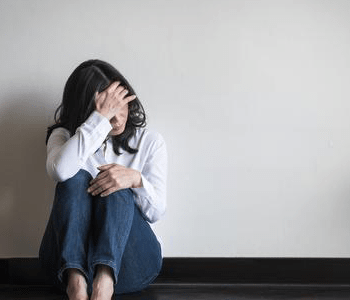When constant worry and negative thoughts are taking over your life, it’s important to seek help from an experienced psychiatric physician. At New Hope Specialty Clinic in Charlotte, North Carolina, Kurian Abraham, MD, offers innovative anxiety diagnosis and treatment options. Through a comprehensive evaluation and physical exam, Dr. Abraham can determine the source of your excessive worry and find the right treatment options based on your specific needs. Don’t delay treatment for anxiety symptoms. Call the Charlotte office or use the online booking feature to schedule an anxiety evaluation.
New Hope Specialty Clinic
Internists & Internal Medicine located in Charlotte, NC

Anxiety Q & A
What is anxiety?
Anxiety is a chronic condition that involves excessive worry and irrational fears that don’t go away. Symptoms of anxiety can worsen over time and interfere with your ability to complete tasks at home or on the job.
There are several types of anxieties, many which focus on specific factors that trigger an emotional response of fear. Generalized anxiety disorder involves excessive worry about events and activities, even if nothing is wrong.
Other types of anxiety include:
- Phobias
- Social anxiety
- Separation anxiety
- Panic disorder
To receive a diagnosis of anxiety, your distress must interfere with your daily life, your job, or relationships for six months or longer.
What causes anxiety?
While everyone feels some anxiety at some point in life, uncontrolled worry and fear can interfere with your ability to function. An anxiety disorder may be the result of a variety of factors, including:
- Genetics
- Life stressors
- Neurological issues
- Environmental factors
In some cases, the cause of anxiety isn’t clear. Excessive worry and fear may also be the result of existing medical conditions.
What are the symptoms of anxiety?
Symptoms depend on the type of anxiety you have. If you have a generalized anxiety disorder, you may experience symptoms like:
- Uncontrollable worry
- Restlessness
- Chronic fatigue
- Difficulty concentrating
- Irritability
- Frequent muscle soreness
- Sleeping difficulties
You may also experience physical symptoms of anxiety, such as frequent nausea, diarrhea, and vomiting.
What are the symptoms of anxiety?
Dr. Abraham can assess the severity of your anxiety symptoms to create a custom treatment plan. Initially, he may refer you for behavioral therapy, where you learn coping skills to manage your symptoms and address specific anxiety triggers.
Psychotherapy is also available on-site that helps you make changes to your patterns of behavior for long-term anxiety management.
In addition to therapy, Dr. Abraham may recommend medications to reduce your anxious feelings and persistent negative thoughts. Certain antidepressant medications, like selective serotonin reuptake inhibitors (SSRIs), can successfully treat symptoms of anxiety.
Dr. Abraham may also recommend at-home relaxation techniques to reduce your stress level and help control your anxiety symptoms. Alternative therapies like meditation, yoga, and acupuncture can also help reduce the occurrence of anxiety-related episodes.
To get compassionate help with managing anxiety, call the office or use the online scheduler.








